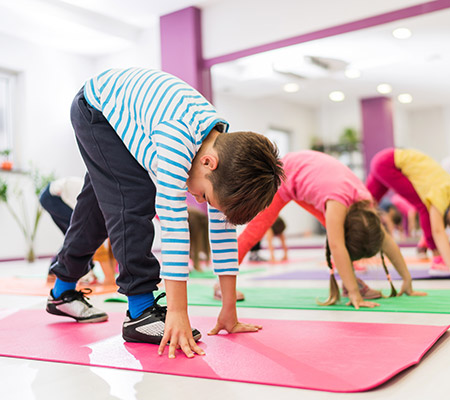
Bone structure has a lot to do with joint flexibility in kids.
Enter a kindergarten classroom and you’re likely to see a handful of kids sitting in a W position – legs in front of them, bent outward at the knees. If you were to look at them from a bird’s eye view, their legs would look like W’s.
Like most parents, you’re probably thinking that sitting like this can’t be good for your child’s knees, hips or growth.
Fear not. W-sitting makes sense for a child’s bone structure and doesn’t harm them in the long run.
W-sitting feels right
“W-sitting is most possible in 3- to 6-year-olds at a time when their thighbones may be rotating,” said Dr. Jacob Lonsdale, a non-operative pediatric orthopedist for Marshfield Clinic Health System.
Many children are born with turned-in thighbones, which can make “crisscross applesauce,” or sitting with lower legs folded toward the body, difficult and uncomfortable. A child’s bone structure makes W-sitting favorable to other positions.
“It may look painful to an adult to sit in this position because most of us no longer have the bone structure for W-sitting. Keep in mind children are not going to sit in a position that hurts them or that they can’t comfortably get into on their own,” Lonsdale said.
What about splits or crisscross?
As mentioned, bone structure has a lot to do with joint flexibility in kids.
“You can’t change a child’s bone structure, so you should never force a child into a position like the splits,” Lonsdale said.
When kids are young, you can change their soft tissue with stretching, which may help them work toward the splits.
Some teachers or child care providers also may use the phrase “crisscross applesauce” to cue their children to gather and sit.
As with W-sitting, crisscross sitting is not harmful to your child as long as they are comfortable and do not have current hip problems.
Can a child be too flexible?
Yes, though this is rare.
“If your child has an excessive amount of mobility in one or more joints, see a pediatrician,” Lonsdale said. “It might be nothing, but it never hurts to ask.”
Excessive mobility includes hyperextension in multiple joints, frequently experiencing out-of-place knee caps or shoulders and lots of double jointedness.
Related Shine365 stories
Can broken bones affect children’s growth?
Kids’ exercise: The key to building better bones
Growing up is a pain (sometimes)


You failed to mention that W sitting allows a child to rest on their skeleton and is a sign of decreased muscle corntrol. When a child needs to sit in the W position for stability, they may have other difficulties keeping their head stable for academic tasks. As such, it is not a recommended position to help promote adequate muscular control of their body.